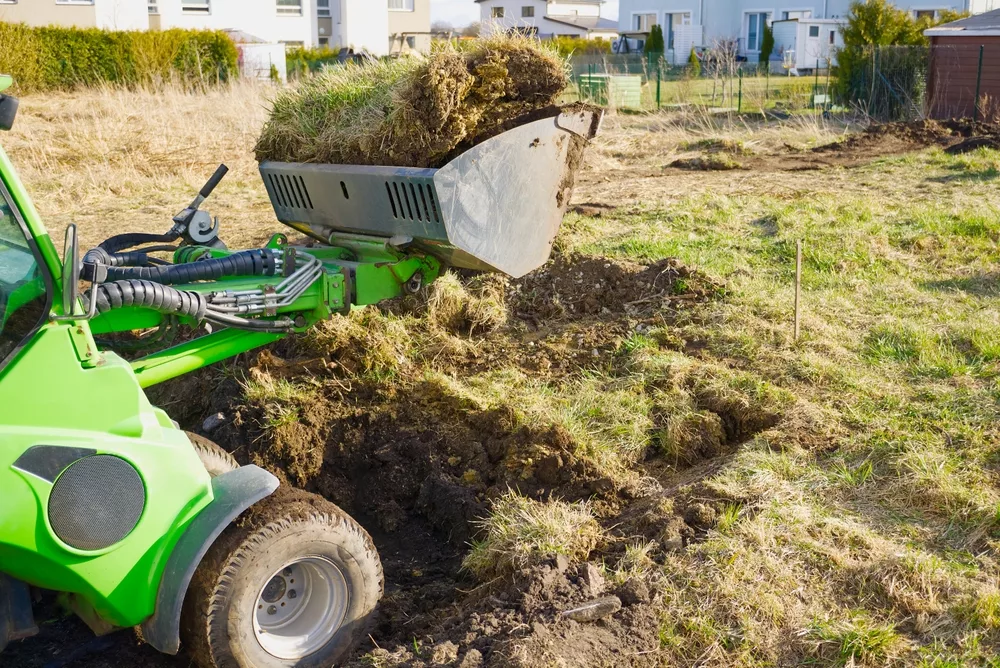What is Land Grading?
Land grading is the process of reshaping the land by moving soil from higher areas to lower areas, creating a desired slope and surface for construction or landscaping projects. It involves various techniques, such as cutting (removing soil), filling (adding soil), and leveling the ground to achieve the desired elevation and contour. Land grading also considers factors like drainage, erosion control, and overall site functionality.
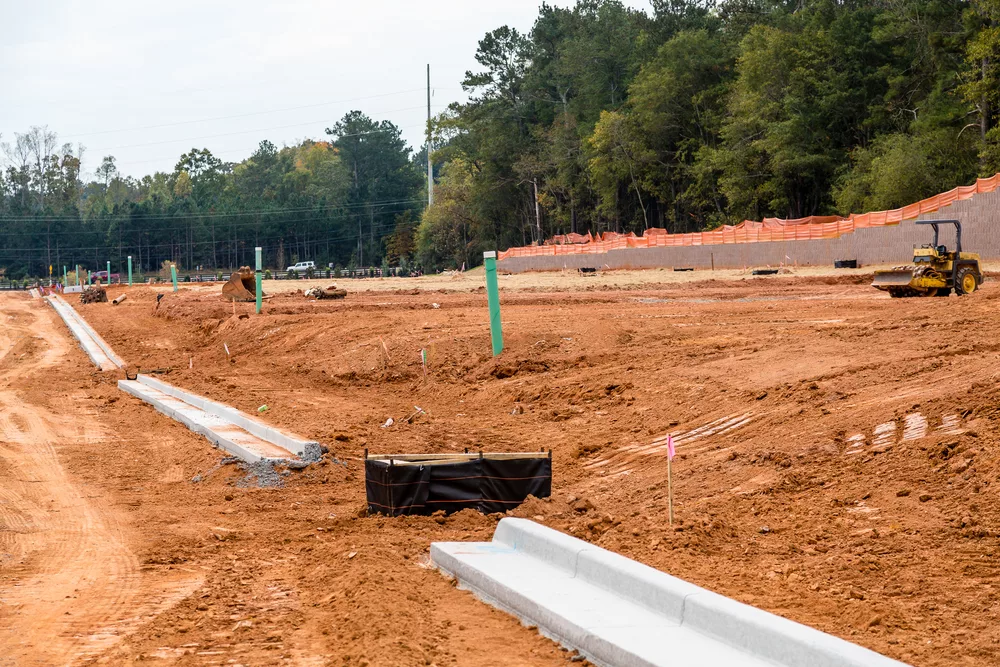
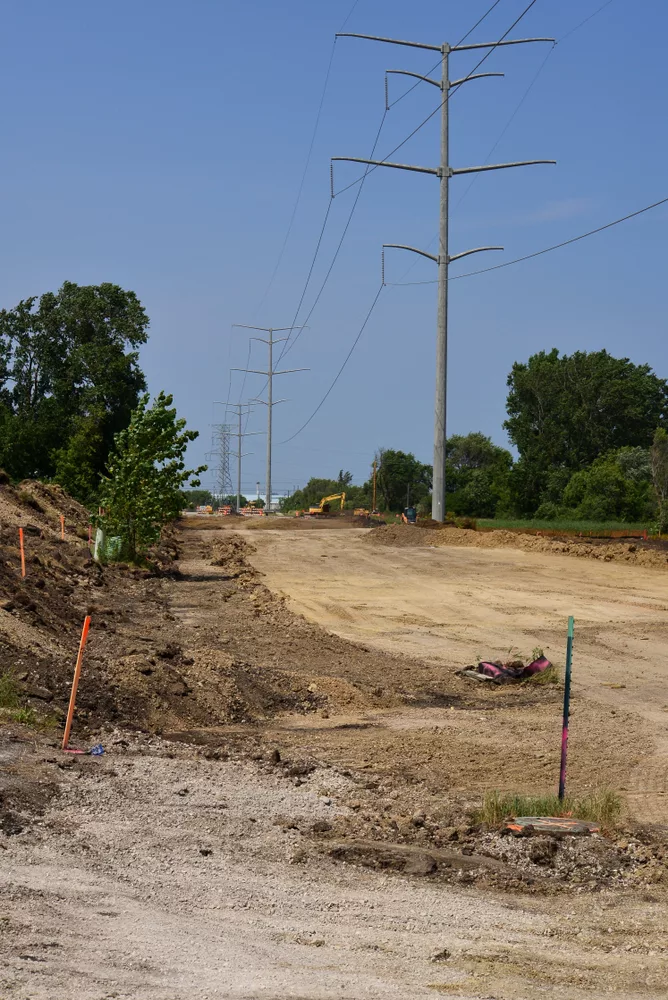
When is Land Grading Needed?
There are a number of reasons why land grading may be needed, but these are three of the most common reasons:
- Construction Projects: Land grading is essential before the construction of any structure. It provides a stable and level base for building foundations, ensuring structural integrity. Proper grading can prevent issues such as uneven settling, foundation cracks, and water damage.
- Landscaping and Gardening: In landscaping projects, land grading is necessary to create even surfaces, gentle slopes, and proper drainage. It helps prevent water pooling, erosion, and soil runoff, providing an ideal environment for plants to thrive. Grading is also essential for installing features like pathways, patios, or retaining walls.
- Drainage and Erosion Control: Land grading is crucial for managing stormwater runoff. By establishing the correct slope and contour, it directs water away from structures, preventing flooding and water damage. Proper grading also aids in preventing erosion by controlling the flow and direction of water, preserving the integrity of the land.
Why Should Land Grading be Performed by a Professional?
Professional land graders possess the knowledge, skills, and experience necessary to assess the land accurately. They understand the topography, soil composition, and local regulations, enabling them to determine the most suitable grading techniques for each unique project. Their expertise ensures that the grading is done effectively, minimizing potential risks and maximizing the longevity of the construction or landscaping project.
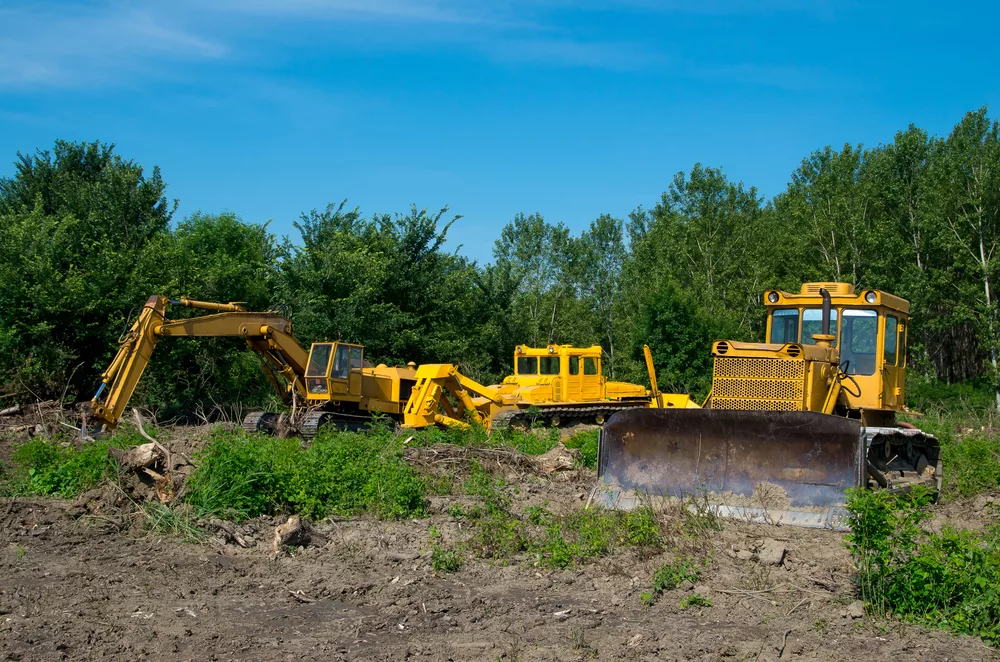
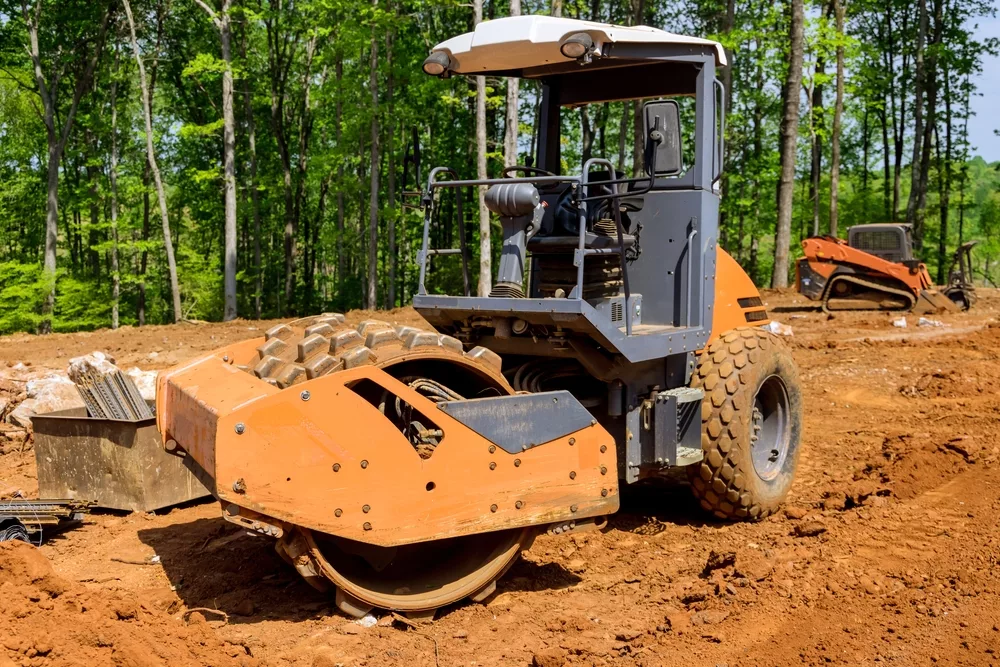
Proper Equipment and Techniques
Land grading requires specialized equipment such as bulldozers, graders, and laser-guided instruments. Professionals are well-equipped with these tools and are trained in their proper usage. They can accurately measure and adjust the land’s slope, ensuring precise grading and minimizing the need for rework.
Compliance with Regulations
Land grading is subject to various regulations and permits, particularly regarding drainage and erosion control. Professional land graders are well-versed in these regulations and ensure that the grading adheres to local codes. By hiring a professional, property owners can avoid potential legal issues and costly penalties.

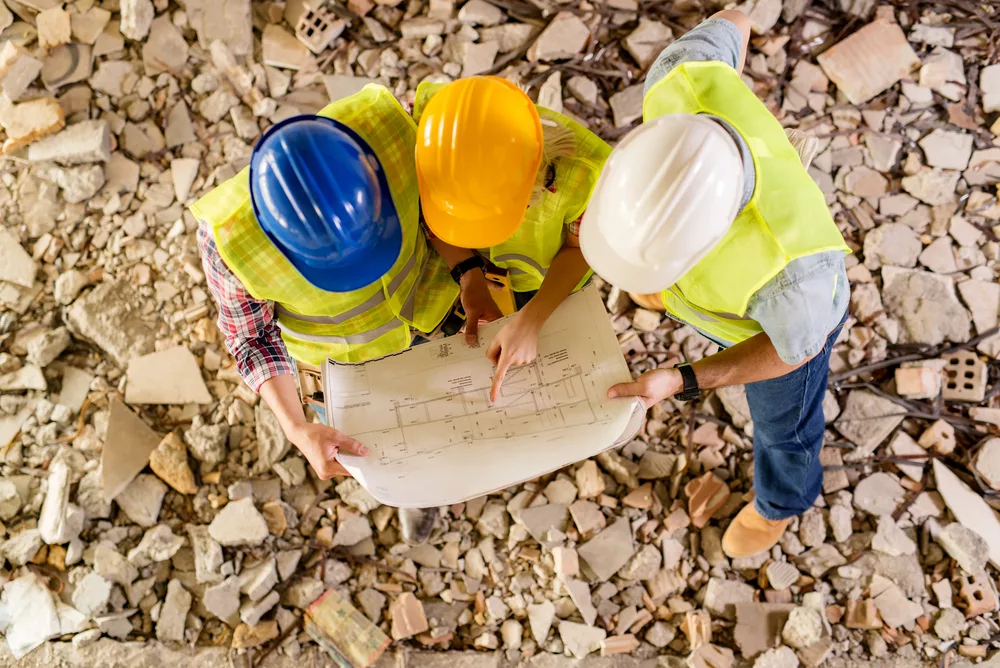
Comprehensive Planning and Analysis
A professional Maryland land grader will conduct a detailed assessment of the site, taking into account factors such as soil quality, existing drainage patterns, and the intended use of the land. They develop a comprehensive grading plan that optimizes functionality, addresses potential challenges, and meets the client’s specific needs. Their thorough analysis helps avoid future problems, such as improper drainage or erosion.
DIY Can Take More Time
While some property owners may consider DIY land grading to save money, it often leads to costly mistakes. Professional land graders work efficiently, completing the task within a defined timeline and budget. Their expertise helps avoid unnecessary expenses, rework, and delays, ultimately saving property owners valuable time and money.
